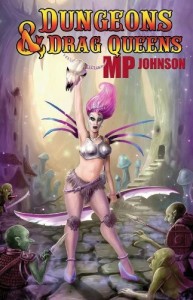Translating theater to film is often even more tricky than
adapting a book. The surface similarities of these time-based forms can make it
appear that all you need to do is set a camera in front of the actors and let
it play out. Of course, in practice, this is far from the truth. A “stagey”
film is removed from everything that makes cinema work, and care should be
taken to make their be a reason the play is on film and not the boards where it
comes from. “A Master Builder”, based on the Henrik Ibsen play, is the latest
effort to bridge the two forms.
 |
Photo by Declan Quinn / Courtesy of The Ibsen Project LLC
|
Then, Hilde (Lisa Joyce) a vivacious twenty-something enters
the home, draws him out of his hospital bed, and leads him into a series of
confrontations with his past and the people closest to him. She’s come to make
him fulfill a promise or bring a reckoning, it’s not completely clear.
Wallace Shawn and Andre Gregory are the minds behind “My
Dinner with Andre”, a significant art film that only has the camera briefly
leave the restaurant the two men are dining in. “A Master Builder” takes a
similar approach, never presenting a scene outside of a handful of rooms in the
house. There are moments in the beginning of the film when claustrophobia set
in as I realized we might not be leaving the bed that Wallace is stuck in. As
each character enters the room, the camera is given a new position and after
Hilde enters the camera follows Wallace and Hilde’s movements through the house.
More interestingly, many technical aspects also shift. Hilde brings with her a
cinematic style absent in the “realism” of the flatter video segments that fill
the first half-hour. The aspect ratio of the film, the size of the frame,
changes to the more dramatic 2.35:1 as it cuts to Hilde for the first time. The
taller 1.85:1 aspect ration doesn’t return until Wallace climbs the “highest
tower” he’s built, near the end of the film. This is formally clever, but also
shows us that director Jonathan Demme (The
Silence of the Lambs) hasn’t forgotten this is still a movie. This
attention to cinematic style lifts the rest of the film from it’s stage
origins.
 |
Photo by Declan Quinn / Courtesy of The Ibsen Project LLC
|
The film is largely driven by dialogue, and that dialogue is
reliant on performance to give it full life. There’s a significant amount of
innuendo and implication in this translation (created by Shawn and Gregory
themselves) and it is on the actors to play these minor chords. All of them are
up to the task, and Joyce does a remarkable job drifting between innocent
hero-worship and stalkerish obsession. Rather than a one-dimensional monster we
can lock the door in front of, we want her to be on the screen as much as
possible. We can see why Halvard asks her to stay in the house at the risk of
encouraging her fantasy of taking over “his castle”.
Ibsen is often mentioned in the same breath as Shakespeare,
and this adaptation offers this same level of depth and complexity. There’s a
lot going in these two hours, and though it is not as heady as My Dinner with Andre, it’s clear Shawn
and Gregory, by way of Demme and the cast, have a lot more than just the reconciliation
of an old man on their minds. There’s nothing as hackneyed as a The Sixth
Sense trick ending, but near the end of the film it becomes very clear that
Hilde is luminous for more than her youthful view of the world.
This film was produced for under $1 million, but unlike most
releases, it actually delivers well above its weight class. I don’t expect A Master Builder to be a runaway indie
success story, but it will grow an audience and I imagine become an important
part of Shawn and Gregory’s trilogy of theater. Rather than being merely a play
that happens on film, Demme has used his many skills to create a film that is
particularly cinematic. Halvard might appreciate that the filmmakers created
their own high tower, yet somehow managed to not fall off of it. Happily, we
can all enjoy the view.
- T.A. Wardrope



